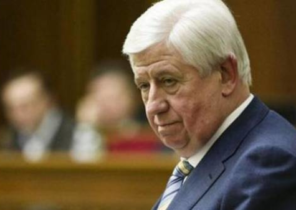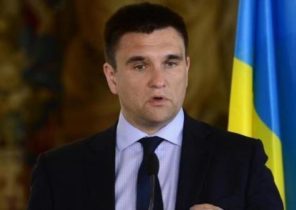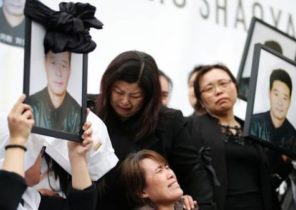
16 APR 1917 Russian immigrant Vladimir Ulyanov, better known by his revolutionary pseudonym Lenin arrived at the Finland station of Saint Petersburg, after a long round about way from Switzerland. Abroad, he lived for almost twenty years. Lenin immediately caused a sensation with his fiery speech and radical political programme, which he called “April theses”. Now the Russian and world politics will never be the same.
And since Lenin returned home through Germany with obvious assistance from the German high command, which at that time led war against Russia and its allies of the Entente (France, Britain, and after the 6th April and the United States), his opponents immediately began to assert that he is a German spy. This statement is controversial to this day. If it is proved that Lenin in 1917, acted in the interests of the German Imperial government, the consequences for our ideas about revolution and about her created by the Soviet Communist regime, which lasted until 1991, will be huge. It could be called operation greatest influence in history. Against this background, today’s concerns about Russian interference in Western elections, including in last year’s elections in the United States, will seem a trifle. Is it?
In a sense, in the German attempts to weaken an enemy state in wartime is nothing new. Great powers were such games for centuries. During the Napoleonic wars, France had helped the Irish rebels to weaken and wear down the British and Polish nationalists — to oppose Russia. Britain, in turn, supported Spanish guerrillas who fought the French occupying forces. The Germans quite later involved in such things, but quickly learned after the unification of Germany in 1871. They even invented a special word for this kind of influence operations: “Revolutionierungspolitik” or the policy of revolutionizing.
If the governments of Britain and France during the First world war was weaker than the other, Lena could to weaken them. But the Germans and against them carried out their subversive activities, though they help Irish nationalists and the French socialists have never been significant.
Russia was the weak link in the ranks of the Entente, because it wore out agitation among the workers and peasant unrest. It is therefore not surprising that the Germans put so much effort to weaken the tsarist regime. Russian revolutionaries helping in a very practical and comprehensive, they subsidize not only the Leninist Bolsheviks, and their rivals from the ranks of the socialists like Trotsky, who at that time was a Menshevik and published anti-war articles in Paris and then in new York.
But if Lenin was not the only recipient of German largesse, he was undoubtedly the most important. Most people understand that under communism, the Marxist programme for the abolition of private property, the introduction of state ownership of the means of production and planned economy. But although these ideas were supported by other European Marxists, they are not attracted to Lenin, the Imperial government of Germany.
Among the Russian socialists Lenin distinguished him from the fanatical protests against the war and his support of Ukrainian independence, which was a key objective for the Union of the Central powers. If other anti-war socialists like Trotsky really hated the carnage and sought to end the war by supporting the protests and resistance mobilization that Lenin, in his written in 1915 work “Socialism and war” argued that revolutionaries need to get into the fighting army, and make them red, should contribute to the riots and to actively seek the defeat of their own governments.
The consequences of Lenin’s program known as “revolutionary defeatism” was so explosive that the Ministry of foreign Affairs Germany intervened and banned to acquaint with this program, soldiers at the front, as the tsarist government could begin arrests of members of the Bolshevik party for treason. For the same reasons Berlin went to the trick with the journey of Lenin through German territory, opacitas the car in which he traveled. It was also very convenient myth for Lenin, since he could tell that no help Germany it is not provided. In fact, the car was not sealed. Lenin several times left him, and once even spent the night in a German hotel in Sassnitz. According to eyewitnesses, Lenin at the time was made political speeches on German soil in the camps for Russian prisoners of war.
After returning to Russia, Lenin did not conceal his anti-war sentiment. In the April theses he advocates the overthrow of the Provisional government, which came to power after the February revolution. During the April coup, which occurred two weeks after the return of Lenin, the Bolshevik activists were carrying anti-war posters openly calling to fraternize with the enemy (“the Germans are our brothers”).
After the second attempted coup known as the July days, Lenin and the Bolsheviks another 10 were charged with “treason and the organization of armed insurrection.” Numerous witnesses told of remittances from Stockholm, about the money laundering through the German company for import, on the financing of the Germans of the Bolshevik newspaper “Pravda” (including distributed on the front of the copies), cash payments to those who during street protests carried Bolshevik posters (10 rubles) and those who fought in the red Guards (40 rubles per day). When Lenin fled to Finland, most of his comrades were arrested. Was prepared all the conditions for demonstration trials.
But it did not. When in late August 1917, the charge of the Interim government have received important confirmation in the form of testimony by police agents who searched Lenin’s headquarters, the head of this government, Alexander Kerensky announced an Amnesty for the majority of the arrested Bolsheviks (but not Lenin) to enlist their support in the fight against General Kornilov, which, according to Kerensky, was preparing a coup with the participation of right-wing forces. Enrolling is very short-sighted, Kerensky allowed the military organization of the Bolsheviks to re-arm and acquire weapons, two months later, overthrew him.
Announcements about the search for Lenin’s arrest on the eve of the October revolution were pasted all over Russia, but he did not miss his chance. After coming to power, he did not exercise caution in dealing with their alleged German masters. On the contrary, as one of his first steps, he sent a telegram to the German military headquarters of the Eastern front with a proposal for an unconditional ceasefire. When in the Tauride Palace in Petrograd announced the harsh conditions of the Brest peace, which the Ukraine and the Baltic States from Russia, Lenin was greeted by cries of “Down with the dictator!”, “Judas!” and “German spy!”
So whether Lenin was a German agent?
In his own mind, Lenin was able to substantiate and justify their actions as tactical maneuvers designed to serve a higher cause of communism, not sneaky military objectives of the German government. That’s fair enough. But it’s hard to imagine that these arguments took into account the court, especially if the jury consisted of ordinary citizens of Russia, and the war still continued. Data collected by the Ministry of justice Kerensky’s evidence and evidence that was recently found in Russian archives, was damning and irrefutable. Whatever his true intentions, there is no doubt that he in 1917 received from the Germans the organizational and financial assistance, and that his actions, starting with the anti-war agitation in the Russian army and ending its calls for unconditional cease-fire, served the interests of Russia’s enemy Germany. These actions also had catastrophic consequences for Russia itself, starting with its territorial dismemberment in 1918 and ending years of suffering under the suffocating the Bolshevik dictatorship.
The Russian revolution marked the beginning of a new era of influence operations abroad. Lenin participated in the creation of the Communist international, which is almost a quarter of a century actively tried to overthrow capitalist governments around the world. The Nazis were a similar game in Austria and Czechoslovakia in 1938, but in 1939 refused to enforce their influence in favor of brute force, by different parties, together with the Soviet red Army invasion of Poland. During the cold war, the Soviet Union and the United States turned Revolutionierungspolitik in a special art, seeking to weaken the allies of each other and the satellite countries all sorts of tricky shenanigans and subversive actions.
Today it appears that a new round of the cold war, although with different ideological overtones, since the Kremlin is promoting populist nationalism in Europe and in the US, and Western leaders and democratic activists mobilized opposition, which is against Russia and Putin friendly modes, such as the government of Viktor Orban in Hungary, which, in turn, tightening of such nuts the activists, calling them “foreign agents”. Revolutionizing policy has acquired a global character.
But before there will be panic, it is important to recall the difference in degree of intensity and style between today’s influence operations and previous episodes. Misinformation, spread by state media, online bots and the trolls on Twitter, this is a serious irritant of the moment, and here there is the exploitation of the openness of Western society to undermine the credibility of democratic institutions. Cyber attacks and hacking hacking is a more serious source of danger. Putin and his apologists blame external political interference in such countries as Ukraine, arguing that Russian actions there — it’s just a response to the activities of the West.
But none of these influence operations cannot be compared in scale and geopolitical consequences with the actions of Germany, cast the Leninist map, or operations, the United States and the Soviet Union during the cold war. Unlike Russia in 1917, the current leaders of the great powers, whether in Washington, Paris, Berlin or Moscow, is a too strong position to become the prey of Lenin. At least we should hope so.
Sean Mcmeekin is Professor of history Bard College, author of “the Russian revolution: a new history” (The Russian Revolution: A New History).






